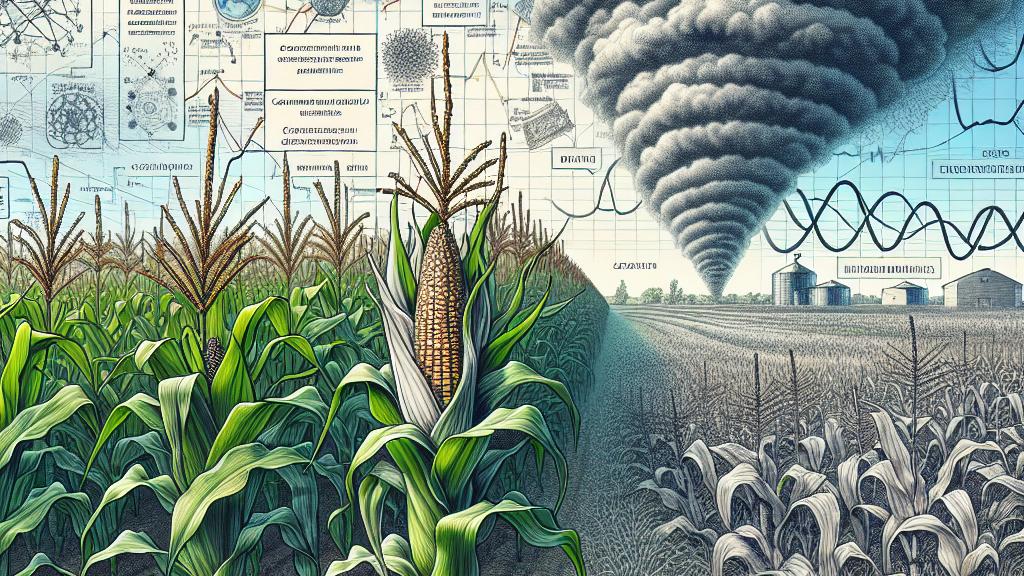Enhancing Crop Resilience Through Genetic and Environmental Insights
Overview
- Integrating genetics, phenotypic traits, and environmental influences can revolutionize how we cultivate crops.
- A groundbreaking quantitative framework helps breeders decode phenotypic plasticity effectively.
- Innovative data-driven strategies are essential for addressing the challenges posed by climate change.

Delving into Phenotypic Plasticity
In the thriving agricultural heart of the United States, particularly at Iowa State University, the quest to understand phenotypic plasticity is making waves. This captivating concept defines how a single maize plant can alter its traits based on the environmental conditions it encounters. Imagine walking through a cornfield after a heavy storm: some plants stand tall while others struggle. This variability is crucial not just for resilience but for maximizing yield in unpredictable climates. Professor Jianming Yu, leading this research, combines extensive genetic data with historical weather patterns, offering a fascinating glimpse into the adaptability of corn. It’s like unlocking a secret code that could lead us to more robust varieties capable of thriving where others falter.
Transforming Breeding Practices with Data
Yu's innovative approach revolutionizes conventional breeding practices by employing vast data sets from over 5,000 diverse maize lines. This is not just about quantity; it’s about employing precision. The team has achieved impressive accuracy rates, predicting flowering times and other growth traits with over 90% certainty across varied environmental scenarios. For breeders, this means they can make informed decisions rather than educated guesses. By identifying specific traits that enhance resilience—like drought tolerance or pest resistance—breeders can cultivate crops that are not only high-yielding but also sustainable in the face of climate change. This strategy transforms their role from merely selecting better seeds to actively engineering crops that withstand the unpredictable.
Paving the Way for Sustainable Agriculture
The implications of this research extend far beyond Iowa State University, as the agricultural community grapples with the urgent need for sustainable practices amid shifting climate patterns. By fostering a comprehensive understanding of how environmental factors interact with genetics, Yu's work leads us to a future where farming adapts to climate challenges. Picture a world where crops flourish despite extreme weather—this vision could become a reality through the insights gleaned from this data-driven approach. Major agricultural companies are beginning to recognize the potential here, appreciating that such sophisticated methodologies are crucial for ensuring food security. Ultimately, the goal is clear: to harness the power of both nature and science to cultivate resilience, creating a robust agricultural landscape for generations to come.

Loading...